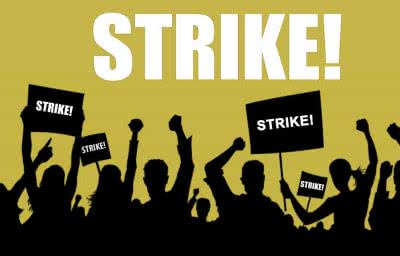Significato della parola strike in italiano
Cosa significa strike in inglese? Scopri il significato, la pronuncia e l'uso specifico di questa parola con Lingoland
strike
US /straɪk/
UK /straɪk/

Verbo
1.
2.
scioperare
refuse to work as a form of organized protest, typically in an attempt to obtain concessions from their employer
Esempio:
•
The workers decided to strike for higher wages.
I lavoratori hanno deciso di scioperare per salari più alti.
•
The union threatened to strike if their demands were not met.
Il sindacato ha minacciato di scioperare se le loro richieste non fossero state soddisfatte.
Sinonimo:
3.
attacco, colpo
a sudden, dramatic, and successful military attack
Esempio:
•
The air force launched a precision strike against the enemy.
L'aeronautica ha lanciato un attacco di precisione contro il nemico.
•
The government authorized a retaliatory strike.
Il governo ha autorizzato un attacco di rappresaglia.
Sostantivo
1.
sciopero
a refusal to work organized by a body of employees as a form of protest, typically in an attempt to gain concessions from their employer
Esempio:
•
The union called for a general strike.
Il sindacato ha indetto uno sciopero generale.
•
The transport workers are planning a 24-hour strike.
I lavoratori dei trasporti stanno pianificando uno sciopero di 24 ore.
Sinonimo:
Impara questa parola su Lingoland